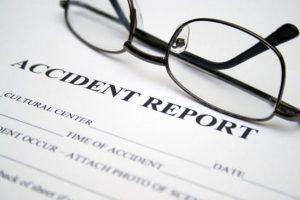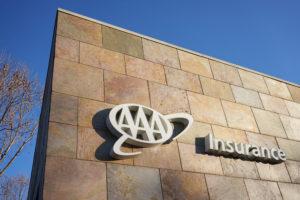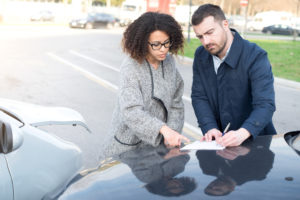
Have you ever reviewed your automobile insurance policy and wondered what your insurance will cover if you’re involved in a car accident? For many of us, deciding what insurance is the right insurance for our needs can be a difficult process. Understanding the various coverage options available is necessary to make the right decision. An explanation of commonly available coverage will help you find the insurance that is right for you.
In some cases, your needs will vary by the state you live in or the coverage required by law in your area. For example, many states require a minimum amount of auto liability coverage. Some may have additional requirements for uninsured motorist coverage. Others have no-fault laws that require you to invest in a personal injury protection (PIP) policy.
Ultimately, understanding what each type does and what options you have is the first step to ensuring you have the coverage you need. The types of coverage you should consider in Louisiana include:
Liability Insurance
Liability insurance covers bodily injury or property damage caused by you, your family members, and others driving your vehicle with your permission. You and your family members are also covered for accidents you cause when driving another person’s automobile, including rental private passenger vehicles. Company cars and other non-owned cars regularly available to you are not covered.
Liability coverage is required in Louisiana. According to the Louisiana Department of Insurance (LDI), this is the only required coverage for drivers in the state. This policy does not pay for injuries or losses you sustain in a crash. Instead, it pays for the damages suffered by victims of an accident you cause.
Buying car insurance for the first time can be an overwhelming task. Insurance companies offer a wide variety of packages, and it’s hard to know which elements are necessary for your lifestyle. To pick a plan that fits your budget and keeps your mind at ease, consult this auto insurance guide. Find out what you’re really paying for.
For a free legal consultation, call 800-537-8185
Comprehensive Coverage
Comprehensive coverage pays for specified damages to your car, such as those resulting from falling objects, fire, explosion, vandalism, or theft. Make sure to read up on any exclusions or limitations specified by your policy to make sure you’re fully covered. This may be a good idea if you have a newer vehicle, live in an area where natural disasters are common, or want to ensure you are covered in the event of some sort of unpreventable damage to your car.
If you financed your vehicle or have a lease, you are likely required to carry comprehensive coverage.
Collision Coverage
Collision coverage pays for any damage to your car resulting from an accident. You can collect under your own collision coverage whether or not you were at fault. Collision coverage is often thought of as the counterpart or partner of comprehensive coverage. While comprehensive policies pay for damage to your vehicle while it is not in motion, collision coverage usually pays for incidents such as traffic collisions.
Collision coverage is also usually required for those who financed or leased their vehicle. Filing a claim based on your collision policy generally requires paying a deductible.
Click to contact our personal injury lawyers today
Medical Payments Coverage
Coverage on medical payments will pay for medical expenses for a designated period following the accident, up to your policy’s dollar limits. This also includes funeral expenses. Payments are made regardless of who is to blame for the accident. This is important because it may be the only way to pay for your own medical care if you suffered injuries in a collision you caused.
Medical payments will cover you and whoever else is in your car. In some cases, health insurance will refuse to cover accident-related medical bills. So, having medical payments coverage will not only safeguard your health by ensuring you get the care you need, but it may save you from having to fight your other insurance providers to get your bills paid.
Uninsured/Underinsured Motorist Coverage
Unfortunately, many people will drive without insurance. Uninsured motorist coverage will cover your car if it is hit by a driver with no insurance or too little insurance to pay for the full amount of your injuries. Hit-and-run drivers may be classified as uninsured motorists if no one can identify the driver.
Under La. Rev. Stat. §1295, drivers in Louisiana must opt out of uninsured motorist coverage in writing. It comes automatically with your liability auto insurance policy. For this reason, many people have this coverage and do not realize it. We recommend always keeping this type of coverage because of the high percentage of uninsured drivers on the roads across the Gulf South.
Uninsured Motorist Economic-Only Coverage
This coverage is the same as uninsured motorist coverage except that it only covers the costs of injuries to you and the occupants of your vehicle. Pain and suffering will not be included under this coverage. This could help make uninsured motorist coverage more affordable for you. It is not necessary if you have medical payments coverage.
Uninsured/Underinsured Motorist Property Damage Coverage
This coverage provides for repairs to your vehicle if you are in an accident with an uninsured driver. You will have to choose a set deductible that corresponds with a recovery amount for this coverage. If your policy includes collision insurance, this coverage is not available.
Towing and Labor Coverage
Towing and labor coverage pays for towing costs and labor costs when your car is disabled. Most automobile policies limit this coverage to $25 per tow, and some companies will not offer these services for older cars. You may opt to join a plan such as the Automobile Association of America (AAA), pay through your car manufacturer for roadside assistance, or another option for similar services.
Rental Reimbursement
This coverage will pay for a rental car if you are forced to use one after an accident. The insurer will generally handle reserving the vehicle for you and scheduling your pickup. There may be a limit on how many days you can have it or how much the insurer will pay per day. Usually, you can rent a vehicle of similar size to your own vehicle while yours undergoes repairs.
Morris Bart, LLC Helps Clients File Claims After a Crash
It is important to have insurance coverage in the event of an accident. But, if you do get in a car accident, do not accept your insurance company’s first offer. Insurance offers rarely account for all aspects of car accident injuries. Call a car or truck accident lawyer at the Morris Bart law firm to ensure you get a fair payout.
Call today for a free case review: (800) 537-8185.
Questions?Call 800-537-8185
to find a Morris Bart office near you.





